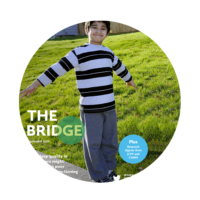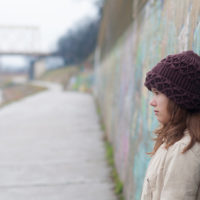self-harm
-

Dr. Joan Asarnow
Dr. Joan Asarnow is a Professor of Psychiatry and Biobehavioral Sciences at UCLA and Director of a SAMHSA-funded Center for Trauma-Informed Suicide, Self-Harm, and Substance Abuse Treatment and Prevention (ASAP Center, with Co-Director Dr. David-Goldston) which offers trainings, consultation, and technical assistance on trauma-informed approaches to evaluation and treatment for reducing suicide and self-harm risk.
Read more -

CAMH Editorial: Volume 26, Issue 1, February 2021
Welcome to the first issue of Child and Adolescent Mental Health (CAMH) in 2021 and also to my first issue as editor‐in‐chief. Needless to say, 2020 has been one of the most difficult years in living memory for many children and young people around the globe, and, as we discussed in our recent issues, the potential impact of COVID‐19 on children’s mental health is profound.
Read more -

September 2020 – The Bridge
The month of September is a challenging time for young people, as they start a new school year. September 2020 will be particularly difficult for many, as they must also deal with the stresses of the coronavirus pandemic and social distancing, as well as the effects of increasing financial pressures on families.
Read more -

In Conversation… Dr Bernadka Dubicka
Bernadka discusses the IMPACT study, the use of technology among children and young people, including the positives and negatives of social media. Includes transcription, and links.
Read more -

DBT-A reduces self-harming behaviours by improving feelings of hopelessness
Professor Lars Mehlum and colleagues have completed a prospective 3-year follow-up study, which showed that DBT-A has enduring effects in terms of reducing self-harm frequency in adolescents compared to EUC.
Read more -

Low parental belongingness increases suicidal ideation risk
The Saving and Empowering Young Lives in Europe (SEYLE) randomized controlled trial (RCT) was originally established to evaluate the efficacy of three school-based interventions on preventing suicide in 11,000 adolescents.
Read more -

Social cohesion and integration in schools reduces suicidal behaviour rate
Emerging data suggest that strengthening positive social bonds and improving social integration might reduce suicidal behaviours in youth to date; little research has studied the effect of social integration, on suicide behaviours, with reference to a young person’s social network structure — namely, an individual’s position within their network and the patterns of relationships among members of the network.
Read more -

Inflammation does not mediate an adverse childhood experience– self-harm risk association
Inflammation has been proposed to be a candidate mechanism contributing to the association between exposure to adverse childhood experiences (ACEs) and the risk of self-harm. In the first study of its kind, researchers in the UK have now directly studied whether inflammatory processes do indeed mediate this association.
Read more -

Individual changes in stress-level predict non-suicidal self-injury
In their latest study, Adam Miller and colleagues propose that these inconsistencies might be due to a reliance on “between-person” models that compare individuals with high stress levels to those with low stress levels.
Read more -

Long-term youth suicide prevention programs can have sustained effects
The Garrett Lee Smith (GLS) Memorial Suicide Prevention Act was passed in 2004 to address the public health issue of suicide in the USA. Since then, numerous programs have been funded via the GLS program to provide comprehensive, community-based suicide prevention programs to adolescents and emerging adults aged 10-24 years.
Read more
